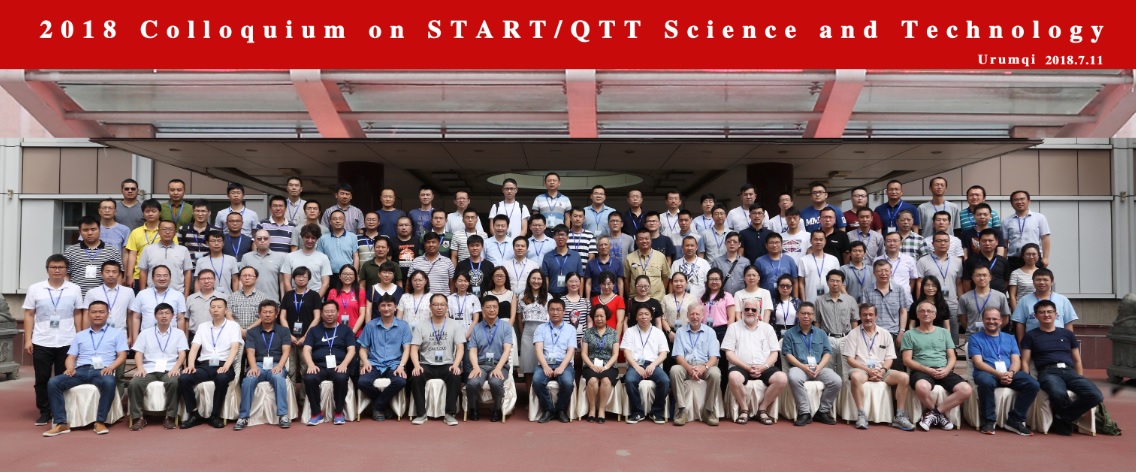The colloquium on Steerable 110-m Aperture Radio Telescope (START/QTT) was held in Urumqi on 11-14 July. More than 120 scholars and students coming from domestic and foreign research institutions and universities attended this colloquium.
At the colloquium, Dr. Na Wang, the director of XAO, introduced the antenna design of START, key technical breakthroughs, status and construction plan of the project. The START team introduced the progress in related technologies. More than 40 academic talks were presented. The well-known scholars and engineers from Australia Telescope National Facility (ATNF), Netherlands Institute for Radio Astronomy (ASTRON), Joint Institute for VLBI ERIC (JIVE), and MT Mechatronics (MTM) were also involved in the discussion. The topics are about the world’s cutting-edge astrophysics research and technology development of large-aperture radio telescopes, which include gravitational wave detection, rotating radio transients, formation and evolution of stars, planet radio science, as well as structure design of radio telescope, active main reflector, ultra-wideband and multi-beam receivers and other key technical areas.
There were exciting technical breakthroughs in many fields. Attendees at the colloquium expressed their eagerness to start the comprehensive construction of the START project as soon as possible. They analyzed START according to their respective research fields, and refined the needs and plans for scientific goals and technical design of START. They believe that China’s radio astronomy has developed rapidly in terms of technology, facilities and science recently and the START will play an important role in the future.
START is a national construction project promoted by Chinese Academy of Sciences, Xinjiang Uygur Autonomous Region and the Astronomical community in China. Since the project was promoted, it has attracted a number of young talents and senior technical experts at the forefront of the astronomy and radio technology. As the key technical achievements of START continue to emerge, a plenty of postgraduates of research institutes have also selected START related science and technology as their research direction of dissertation, which provides technical and talent guarantee for START construction.
Some attendees went to Qitai Observatory to investigate START site after the colloquium. They evaluated it is an excellent radio observation site and it ensures that the START will play a key role as a world-class research facility.
